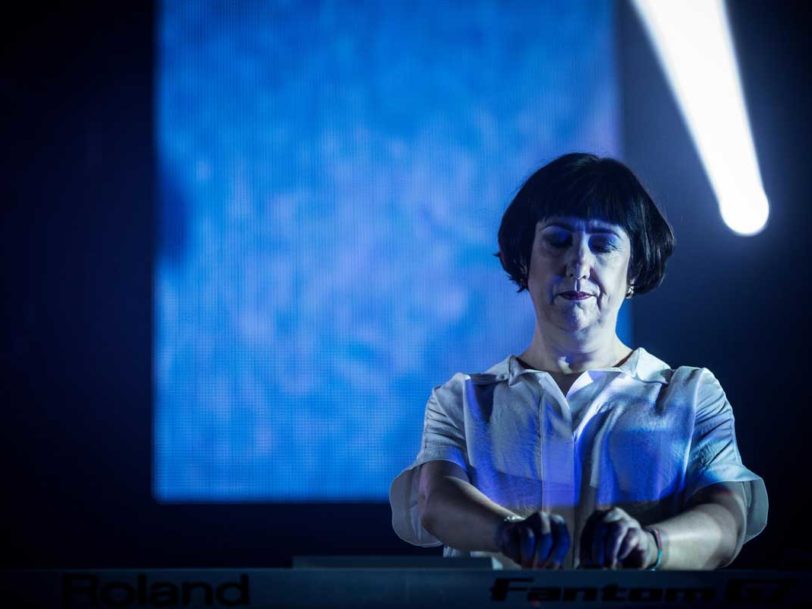Most epic rock’n’roll stories feature an unsung hero, but in New Order’s case that should surely read “heroine”. After all, while she’s never actively courted the limelight, keyboardist Gillian Gilbert has quietly but decisively played a substantial role in securing New Order’s longevity.
Listen to the best of New Order, here.
Initially enlisted to help Bernard Sumner with guitar and keyboard duties when Joy Division morphed into New Order following the death of Ian Curtis, Gilbert deserves considerably more kudos than she receives for her contributions to their sound. Barring 2005’s Waiting For The Siren’s Call, she’s been heavily involved in all New Order’s albums, and she’s a firm favourite with the fans, whom she continues to inspire.
“Having Gillian as the synth queen was fucking amazing”
In a 2020 NME interview, rising electronic musician Kelly Lee Owens enthusiastically sang Gillian Gilbert’s praises, saying, “Having Gillian as the synth queen was fucking amazing, speaking as a woman in music.” She added, “To have a woman be a part of something like this and own her part was really inspiring… Women are often underrated, or their part is dismissed.”
Gilbert’s response was typically modest: “You never think of your work as part of history or influencing people,” she said. “It was weird when I joined because nobody expected a girl to be brought into the band. They expected another singer.”
“There’s no women playing guitar”: early years
Born in Manchester, on 27 January 1961, Gillian Gilbert’s uncle initially taught her to play guitar; but in the same way Sex Pistols galvanised Ian Curtis, Bernard Sumner, Peter Hook and Gilbert’s future husband, Stephen Morris, into founding the embryonic Joy Division (initially as Warsaw), Gilbert cites punk as the catalyst for her involvement with music.
“My Dad always said, ‘You changed as soon as you saw Siouxsie And The Banshees on television,’” she told online Australian publication The Music in 2019. “And I really liked Gaye Advert out of The Adverts, who played bass. I thought, Oh there’s nobody playing guitar – you know, no women in bands.”
Prior to New Order, Gillian played with a local punk outfit, The Inadequates, and also appeared with Joy Division on one occasion, playing guitar on one song at a show at Eric’s in Liverpool, in 1979, after Curtis hurt his hand on a bottle.
“Gillian added to the allure”: joining New Order
After Curtis’ death, however, manager Rob Gretton proposed that Gilbert join New Order when the band’s initial spate of low-key gigs in the UK and US revealed they needed a fourth member to enrich their sound – and to encourage Sumner when he took over the lion’s share of vocal duties.
“Rob just rang up one day and went, ‘I’ve got an idea – we should get Gillian in to play guitar,’” Morris recalled in New Order’s podcast series Transmissions.
“He was dead right because we all found singing and playing impossible at the same time when New Order started. Looking back now, it seems obvious that we needed to get someone else in – sort of, ‘Blimey, why didn’t we think of that?’”
Gilbert made her live debut with New Order on 25 October 1980 at The Squat in Manchester. She played guitar during her first studio recording (a re-recorded version of New Order’s first single, Ceremony), but while she also played guitar on a number of early New Order songs, including Dreams Never End and We All Stand, keyboards became her primary domain as the bands’s uniquely hybridised, dance-infused rock sound evolved.




